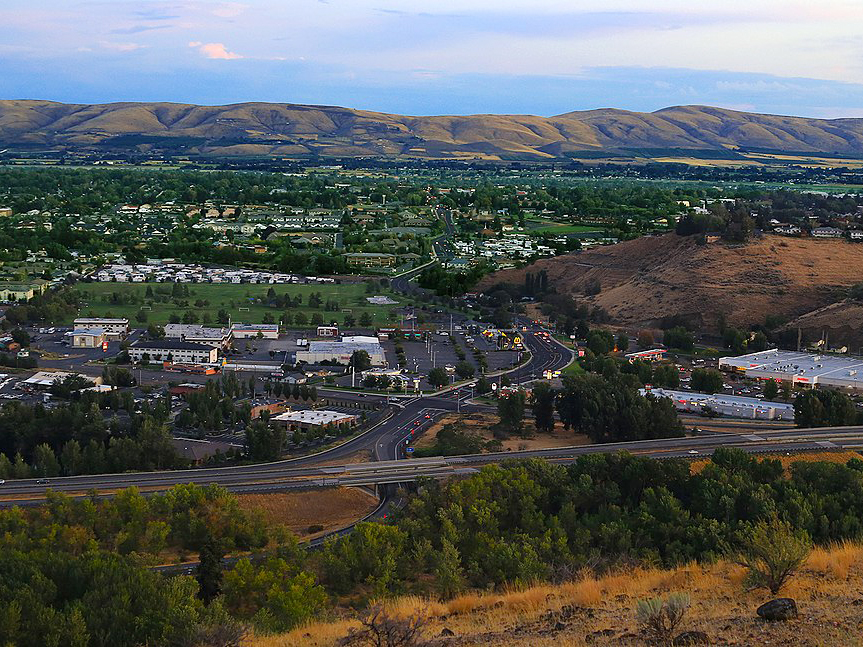Washington’s environmental cleanup law, known as the “Model Toxics Control Act,” turns 30 this month. Our cleanup law has served as a road map to cleaning up industrial sites and other properties contaminated by toxic chemicals.
Removing these threats helps protect human health and the environment, and opens the door to put properties back into use. Ecology is now working to make it easier for affordable housing developers to redevelop once-contaminated properties into housing that communities can afford.
Rapid development and the housing crisis
Many areas of Washington state are experiencing a housing crisis. Our state’s economic boom and population growth bring many benefits, but they are also driving up rents, home prices, and property taxes with devastating effects on some of our communities’ most vulnerable residents.
As Washington’s cities continue to rapidly grow, easily developable land for residences and commercial centers is becoming harder to find. More valuable real estate means cleaning up and redeveloping contaminated properties is more attractive to developers — which is good news for the environment. But the costs of cleanup often end up being passed through in the price of redevelopment, including housing. We’re trying to take the some of the cost of cleanup out of the equation, easing the way for the building of affordable housing.
Ecology’s Integrated Planning Grants
If you live in Washington, Ecology works for you. That’s why nearly 70 cents of every dollar that comes to Ecology is passed through to local communities. In 2018, the Legislature provided us with $1 million for Integrated Planning Grants to be used for affordable housing projects. These are flexible grants that local governments can use to support pre-construction cleanup activities, including planning, investigation of levels and types of contamination, community involvement, education, and outreach.
We used these funds to award nearly $200,000 each to six new or potential cleanup projects aimed at expanding affordable housing.
Bellingham
This project, headed by the City of Bellingham and Port of Bellingham, includes cleanup and redevelopment of approximately three acres at the corner of Cornwall Avenue and Laurel Street near downtown Bellingham. Located within walking distance of downtown, Western Washington University, and public transportation, the redevelopment will include up to 50 affordable housing units, work-live spaces, ground-floor commercial spaces, a community kitchen, and public open space. The next steps include coordination with private developers, the Bellingham Housing Authority, other nonprofits, and conducting public outreach and involvement.
Bremerton
The Bremerton Housing Authority will use these funds to complete the design of the cleanup plan at a vacant and underutilized industrial site along Oyster Bay Avenue. Once cleanup is complete, the housing authority will construct up to 50 units of affordable housing in a multi-story building. Funds will also be used to evaluate planning needs such as parking, utilities, and the potential need to update or rezone the property based on the city’s current comprehensive plan. The Housing Authority will conduct a series of public meetings on land use changes and housing needs.
Kennewick
The City of Kennewick proposes to redevelop an approximately 10-acre former maintenance yard into the Kennewick Housing Authority Multi-Family Housing Complex with 110 units. The site consists of six buildings, only one of which is currently in use.
Seattle
The Seattle Chinatown International District Preservation and Development Authority will use its grant funding to examine the cleanup needs and development potential for a currently underutilized eight-acre property in the district. Past environmental assessment work at the site has left concerns that the property could still be contaminated with hazardous substances. More investigation is needed to understand the nature and extent of contamination on the site, and to identify the potential for integrating any required cleanup with the redevelopment of the area into affordable housing units and commercial spaces for this urban community.
Wenatchee
The City of Wenatchee plans to evaluate a former tree fruit research facility for potential purchase and redevelopment into a community asset that will support affordable housing. The Washington State University Tree Fruit Research and Extension Center property is located at 1100 N. Western Avenue at the corner of N. Western Avenue and Springwater Avenue. The property contains suspected contamination related to historic tree fruit research operations that included storage of pesticides and other agriculture-related chemicals and fuel products. The city is interested in facilitating the development of affordable housing and promoting new economic development.
Yakima
Yakima has a significant need for affordable housing and facilities to accommodate homeless individuals. The City of Yakima will be using its funding to investigate contamination of a city-owned area that was used for fruit and vegetable processing. Once cleaned up, the site will be used to provide transitional housing units and a shelter. The city hopes to build 30 affordable housing units and a 100-bed shelter.
Keep an eye on our blog for more stories on how we use Washington’s cleanup law to protect the environment, invest in communities, stimulate economic development, and build relationships.


